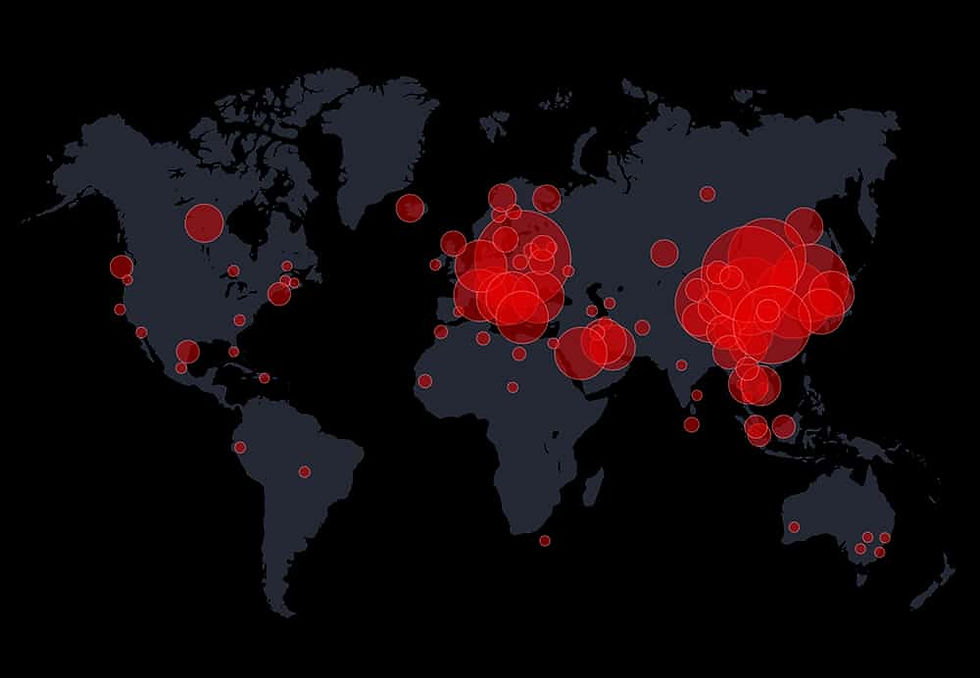
COVID-19, which affects the whole world, continues to affect many sectors as it affects daily life. Naturally, the telecom and communication sector is at the top of the affected sectors. While social isolation and quarantine are physically distancing us from each other, the telecom sector continues to keep us emotionally close together.
In this period, the fact that people use more communication tools causes an overload on the networks, and the companies work harder to prevent any problems in communication and impose certain restrictions.
5G technology, which was waited with excitement for a long time, was the subject of some developments in this period.
Superfast internet connection and high capacity have been a solution to some needs. The pandemic period for the smart city concepts we mentioned in our previous articles has been a trial period.
Now it's time to go into some detail. Here are the effects of the COVID-19 pandemic on the telecom industry.
Remote consultation and diagnostics system launched using 5G infrastructure in China
The innovations that 5G technology will bring to the medical field have been mentioned before. During the pandemic period, China launched a 5G supported system providing remote diagnosis and consultancy services in January, in partnership with ZTE and China Telecom. With this system, physicians at China West Hospital diagnosed and treated infected people in 27 different hospitals. This innovation, which is a revolution for the health sector, is expected to spread to more hospitals and countries in the future.
UAE lifts restrictions on some apps, using VoIP technology
UAE, one of the world's top tourist and expatriate countries, allowed certain VoIP applications to be used to make it easier for people to reach their distant families and workplaces during the pandemic period. In line with the high demands of people, applications such as Skype for Business and Zoom were opened for access. However, applications such as Facebook Voice and Whatsapp are still banned. We will see what changes will happen in the situation according to the progress of the pandemic.
Voice traffic increased during COVID-19 period
Although there are many messaging apps, the increase in voice traffic was noticeable during this period. Although people found messaging practical, voice communication didn't lose its popularity. In Switzerland, the voice call numbers are tripled.
Location access permission against virus spread
Many countries legislated laws that allow location access to track patients under quarantine and prevent the spread of the virus. Mobile phones were one of the factors that slowed the spread of the virus in case controls.
Some of the countries that have implemented this approach; are Slovakia, Singapore, and South Korea.
40% increase in Whatsapp usage
It is not surprising that Whatsapp, the most used instant messaging application in the world, was one of the most used applications in this period.
Social distance and isolation led people to such applications more and Whatsapp usage increased by 40%. Kantar, one of the global research companies, stated that the rate of increase from 27% in the first period of the pandemic to 41% in the mid-term.
Apart from Whatsapp, Facebook and Instagram usage increased by 40% especially under the age of 35.
Increased 5G demand
The transition of companies to the concept of working remotely during COVID-19 period, the overloads caused by the increased use of the Internet increased the demand for 5G.
The large bandwidth capacity and high speed offered by 5G will make the connection even more flawless.
What are we doing in this process?
We work from home, we carry as many calls as we can. We provide 24x7 technical support to ensure that communication is not interrupted and we serve with greater enthusiasm than ever.
If you have anything to consult, please feel free to contact us.
Sources;
Comments